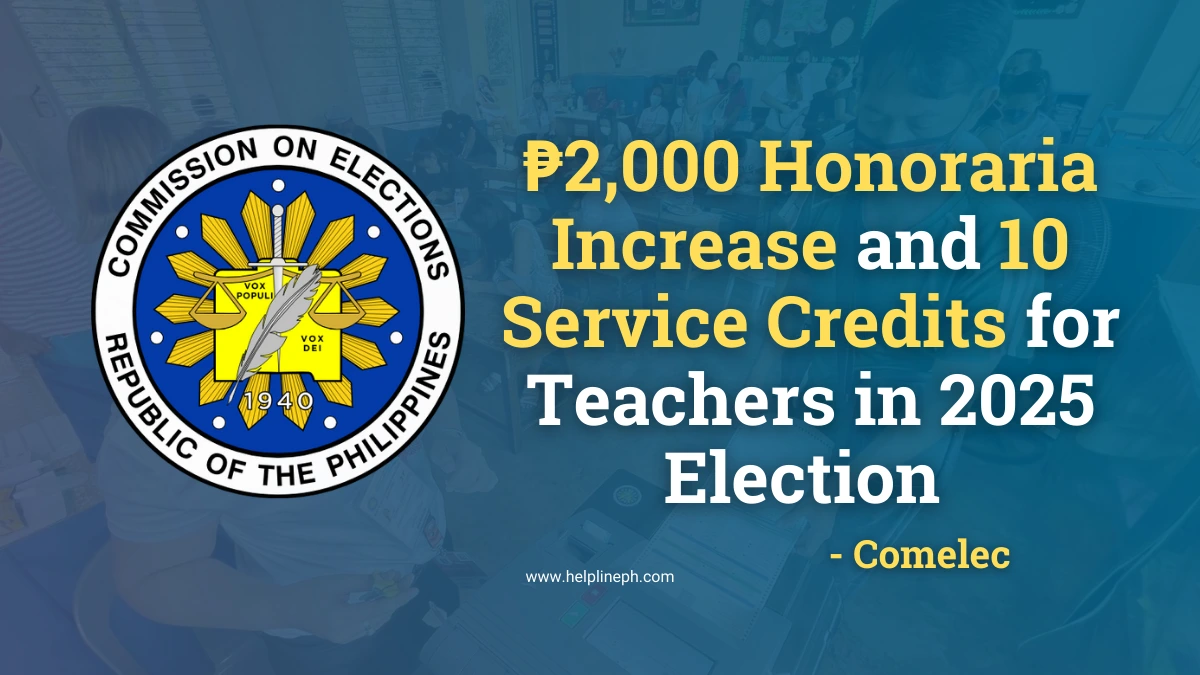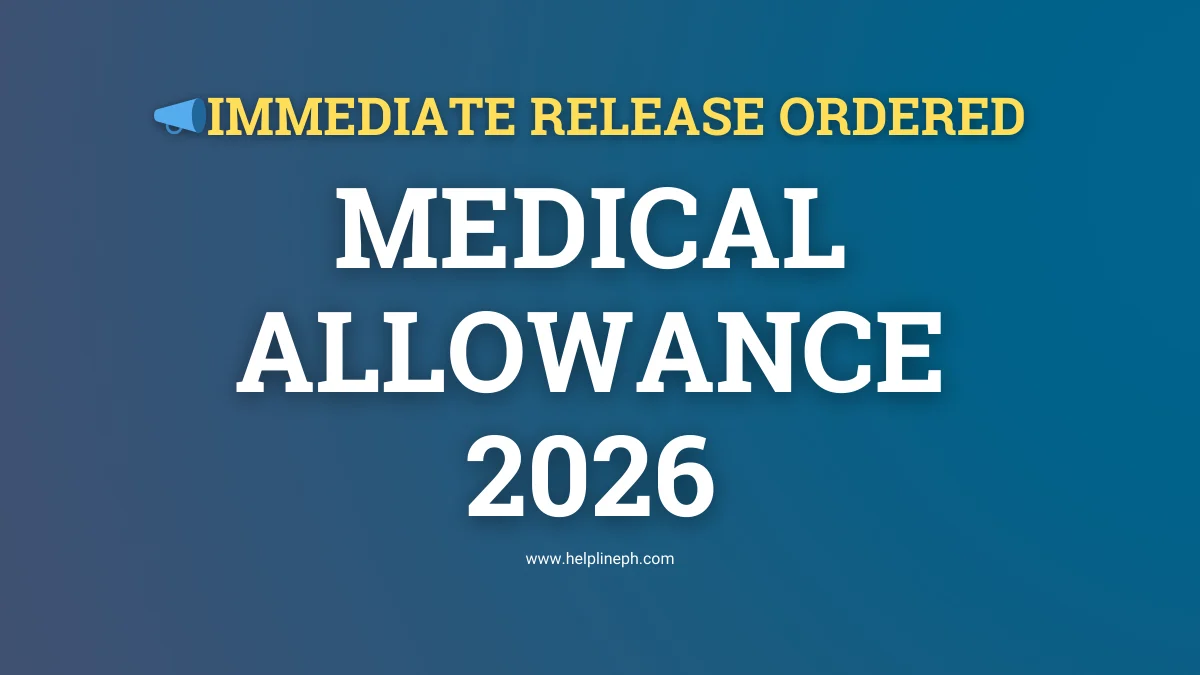The Commission on Elections (Comelec) in the Philippines has announced a plan to increase the honoraria and allowances for teachers who will be serving as poll workers in the 2025 national and local elections. This announcement brings positive news for teachers, who play a crucial role in ensuring that elections run smoothly and securely. Comelec Chairman George Garcia stressed that these changes are necessary to acknowledge the hard work teachers put into election duties, often involving long hours and added responsibilities.
Here’s a breakdown of the proposed enhancements in compensation for teachers serving in the upcoming elections.
Proposed Honoraria Increases for Election Workers
Teachers serving in different roles on election day will see an increase in their honoraria. Here’s how the updated compensation will look:
- Chairperson of the Electoral Board
- Current Honorarium: ₱9,000
- Proposed Increase: ₱2,000
- New Honorarium Total: ₱11,000
- Members of the Electoral Board
- Current Honorarium: ₱8,000
- Proposed Increase: ₱2,000
- New Honorarium Total: ₱10,000
- DepEd Supervisor Official (DESO)
- Current Honorarium: ₱7,000
- Proposed Increase: ₱2,000
- New Honorarium Total: ₱9,000
- Support Staff
- Current Honorarium: ₱5,000
- Proposed Increase: ₱2,000
- New Honorarium Total: ₱7,000
This increase is meant to better compensate teachers for the time and effort they put in, helping manage long lines, assist voters, and oversee the voting process to ensure fairness.
Additional Allowances for Election Day
Apart from honoraria, Comelec is also proposing new allowances to make it easier for teachers to travel and communicate on election day:
- Transportation Allowance
- Teachers will receive a proposed transportation allowance of ₱1,000 to cover travel expenses on election day, a first-time addition that aims to make commuting more affordable for teachers.
- Communication Allowance
- For DepEd Supervisor Officials (DESO) and their technical support staff, a ₱1,500 communication allowance is available to help them stay connected and coordinate activities on election day.
These allowances provide financial support for essential needs, helping teachers cover transportation and communication costs during their time at the polling stations.
Doubling Service Credits
Teachers earn service credits for their work outside regular school hours, which they can use for leaves in the future. Currently, teachers who serve as poll workers receive five service credits. Under Comelec’s proposal, this will increase to 10 days of service credits. This means teachers can take more time off later to rest and recover from their election work without impacting their regular leave balances.
Why the Increase is Needed
Comelec Chairman George Garcia explained that these increases are essential due to the hard work and long hours that teachers commit to during elections. Teachers often have to arrive early, stay late, and handle large crowds of voters, which is a tough responsibility. Garcia believes that fair compensation is key to recognizing the efforts of teachers and encouraging them to continue participating in the election process.
Furthermore, the increase in pay and allowances may also attract more teachers to volunteer as poll workers, ensuring that there are enough trained and capable individuals available to manage the election process effectively. With a fairer pay package, teachers will likely feel more motivated and appreciated in this important role.
What These Changes Mean for Teachers
If approved, these proposed changes will significantly benefit teachers in several ways:
- Increased Financial Support: The added honoraria and allowances mean teachers will receive better pay for their election day service. This can help cover additional expenses and acknowledge their hard work.
- More Flexibility with Leave: Doubling the service credits to 10 days allows teachers more flexibility in their schedules, giving them time to rest and recover without affecting their standard leave.
- Support for Transportation and Communication: New allowances for transportation and communication will help cover essential expenses, making the experience of serving as a poll worker smoother.
These changes show Comelec’s recognition of the dedication teachers bring to the election process and the need to make their service both rewarding and manageable.
Challenges and Next Steps
While Comelec has proposed these changes, securing the necessary budget for implementation remains a challenge. Chairman Garcia highlighted the importance of ensuring funds are available to support these increases. If the budget is approved, Comelec’s proposal could set a new standard for compensating poll workers in future elections.
As Comelec moves forward with budget discussions, teachers across the country are hopeful for a positive outcome. If approved, the proposal will mark a significant improvement in the treatment and compensation of teachers who serve as poll workers, setting a new precedent for fair pay and support.






